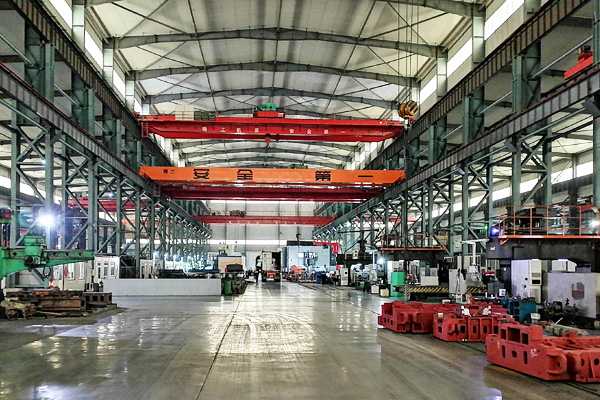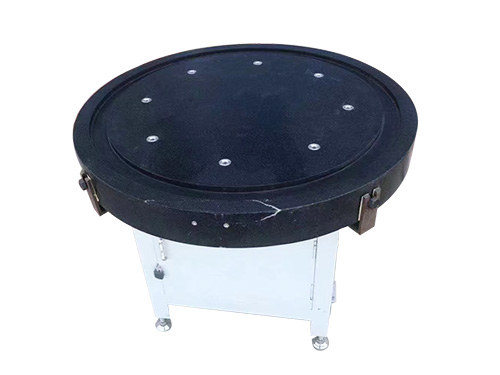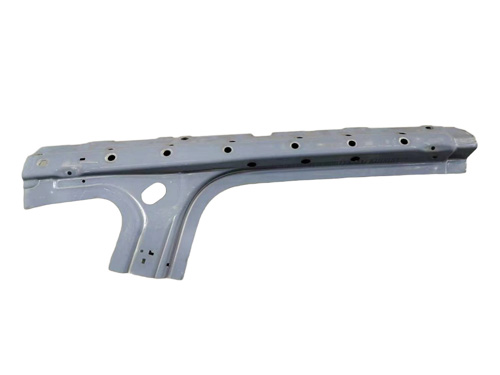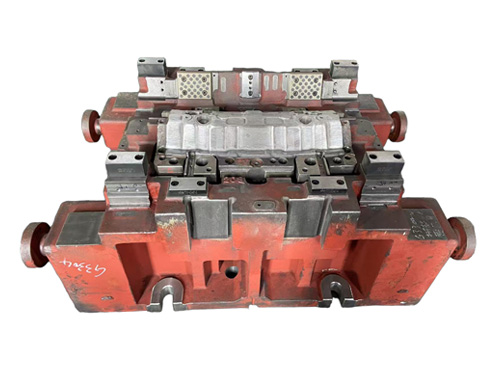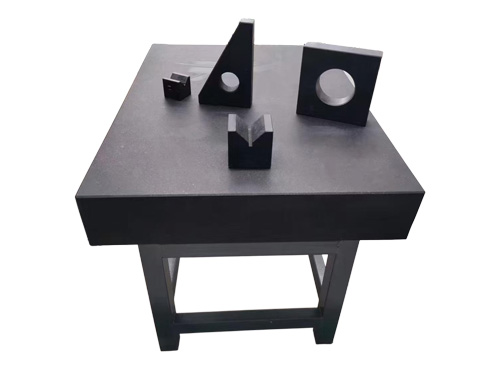News Detail
Optimizing Welding Table Placement and Workshop Layout in Small Spaces: 3 Practical Solutions to Improve Production Efficiency
author:hxrtools Time:2025-07-23 18:03:11 Click:56
In precision manufacturing and small-to-medium-scale production environments, the utilization of space in a welding workshop directly impacts production efficiency and costs. Research from institutions like Fraunhofer Institute shows that optimizing layout can increase workshop space utilization by 35% and improve logistics efficiency by 40%. This article combines cutting-edge technologies and practical case studies, offering 3 feasible optimization solutions to help companies overcome space constraints.
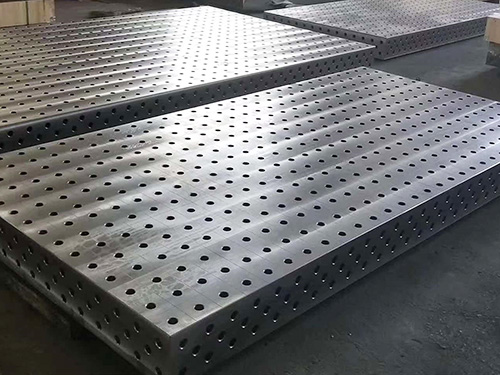
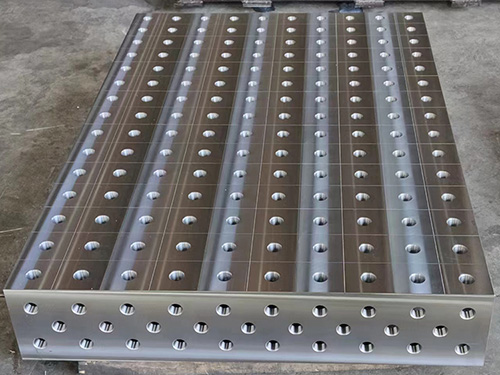
Solution 1: Modular Vertical Layout — Breaking the Spatial Limitations
1.1 Vertical Space Development Technology
A three-tier vertical layout is adopted:
·Bottom layer: Heavy-duty equipment area (e.g., welding positioners, hydraulic presses) with a floor load capacity of up to 5 tons/㎡.
·Middle layer: Lightweight welding robot workstations, mounted on a steel platform 2.5 meters above the ground.
·Top layer: Material handling area with electric lifts for cross-floor material transport.
This solution significantly enhances the space utilization of production lines and increases capacity in limited spaces.
1.2 Foldable Tooling System
Developing a magnetic quick-change fixture system:
·30-second workstation switching: Electromagnetic adsorption technology secures the fixture, increasing efficiency by 12 times compared to traditional bolt fixtures.
·90% space reuse rate: The same workstation can accommodate multiple different product welds.
·Positioning accuracy ±0.05mm: Integrated laser positioning system meets precision welding requirements.
This flexible tooling system significantly improves production line flexibility and efficiency, making it ideal for low-volume, multi-product manufacturing.
Solution 2: Process-Oriented Layout — Eliminating Logistics Waste
2.1 U-Shape Cellular Design
Building a U-shaped welding unit based on lean production principles:
·Optimized Process Integration: The four processes of loading, Welding tables were arranged in a U-shape, reducing operator walking distance by 65%.
·Single-piece flow production: Using a Kanban system to achieve zero inventory between processes, reducing in-process workpieces by 80%.
·Multi-skill operator training: Operators are trained to handle multiple tasks, reducing labor costs.
This design significantly improves production efficiency and space-saving in welding workshops.
2.2 Dynamic Logistics Path Planning
Introducing digital twin technology for logistics path optimization:
·Virtual debugging: Completing 90% of logistics path validation before physical equipment installation.
·Real-time optimization: Adjusting material transport routes dynamically through an AGV scheduling system to avoid cross-interference.
·Energy consumption monitoring: Integrated power sensors to reduce logistics equipment energy consumption by 28%.
This technology effectively enhances logistics efficiency, reduces waste, and optimizes resource utilization.
Solution 3: Human-Machine Collaborative Layout — Enhancing Work Comfort
3.1 Ergonomic Workstations
Designing welding tables according to ergonomic standards:
·Adjustable workbenches: Height adjustment range of 650-950mm to accommodate operators of different heights.
·Cantilevered operation panel: Pneumatic support arm enables 360° rotation, reducing neck fatigue.
·Anti-fatigue mats: Using memory foam material to reduce operator fatigue by 40% during standing work.
This design improves the comfort of operators, reduces fatigue, and enhances overall work efficiency.
3.2 Integration of Smart Assistance Systems
Deploying collaborative robotics technology:
·Force control technology: Six-dimensional force sensors for precise force control, preventing workpiece deformation.
·Visual guidance: 3D structured light scanning technology reduces the welding path generation time from 15 minutes to 90 seconds.
·Safety protection: Area scanning sensors are installed to ensure safe human-machine interaction.
The integration of smart systems enhances welding accuracy, efficiency, and operator safety.
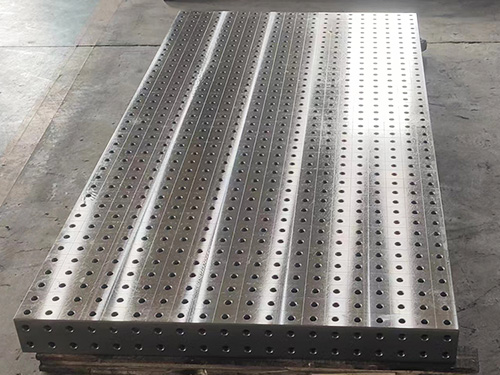
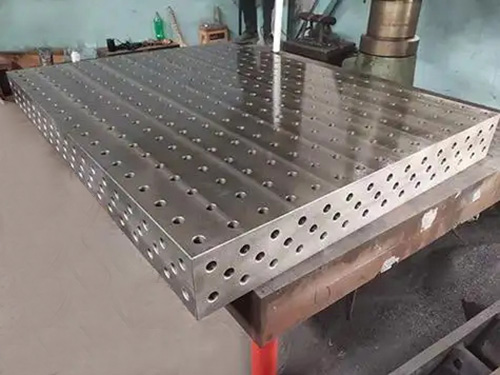
Implementation Path and Benefit Assessment
4.1 Three-Stage Implementation Strategy
| Phase | Duration | Core Tasks | Expected Benefits |
|---|---|---|---|
| Diagnosis | 1-2 weeks | Value stream analysis, space utilization measurement | Identify 30%+ of waste points |
| Transformation | 4-8 weeks | Equipment relocation, logistics system reconfiguration | Space utilization improvement of 25%-40% |
| Optimization | Ongoing | Digital twin simulation, dynamic parameter adjustments | Monthly production efficiency improvement of 3%-5% |
4.2 Future Development Trends
With continuous advancements in digitalization and automation technologies, the demand for smart welding workshops is expected to grow. Space optimization solutions will become key for companies to increase production efficiency and reduce costs. The manufacturing industry needs to accelerate the adoption of cutting-edge technologies to drive innovation and development in smart welding systems.
References
·Fraunhofer Institute for Production Systems and Design Technology. (2025). Space Optimization in Welding Workshops. IPK Berlin Technical Report.
·National Institute of Standards and Technology. (2025). Lean Layout Design for Small-Scale Manufacturing. NIST Special Publication 1500-308.
·Siemens Industry Software. (2025). Digital Twin Framework for Welding Process Optimization. Plano, USA.
 HOT PRODUCTS
HOT PRODUCTS
 CONTACT US
CONTACT US
—— E-mail:project@haoranmj.com
—— Whatsapp:+86 18932785670
—— Tel:+86 18932785670
—— Add:Across from Sanjing Distillery on Road 4, Botou Economic Development Zone, Cangzhou City, Hebei Province









